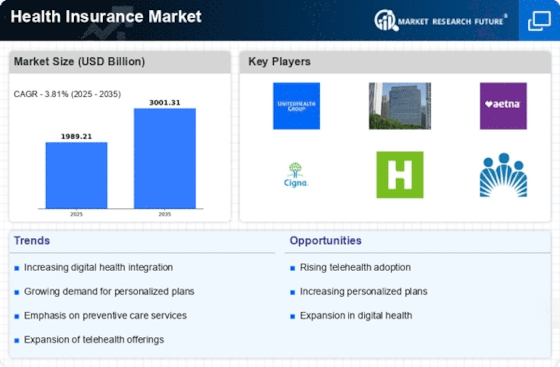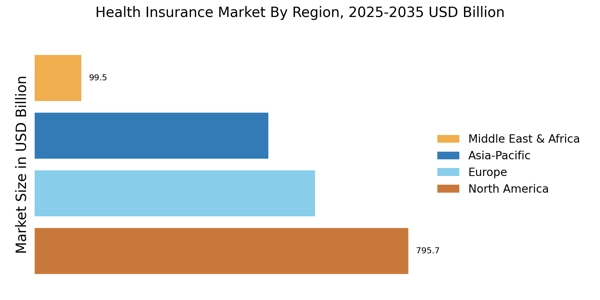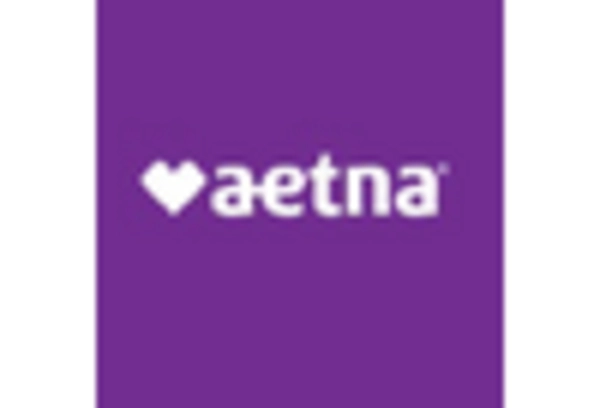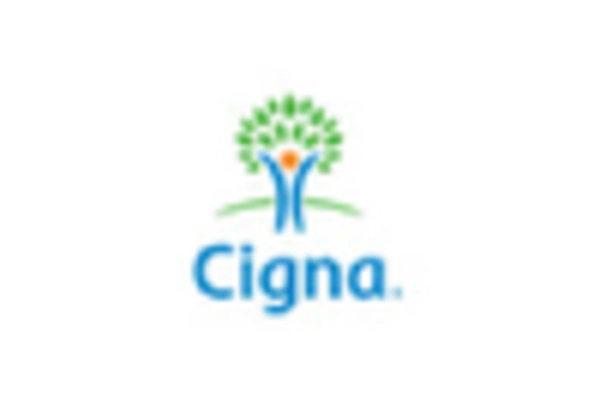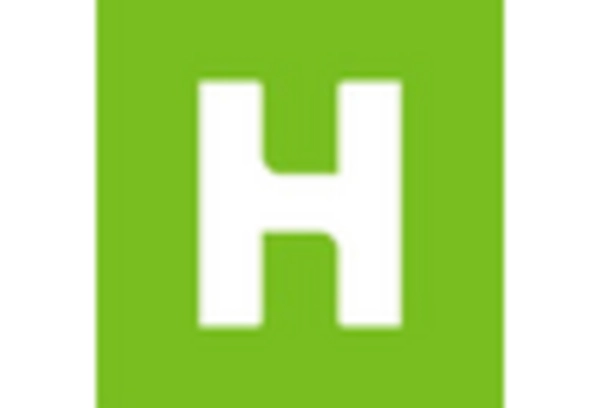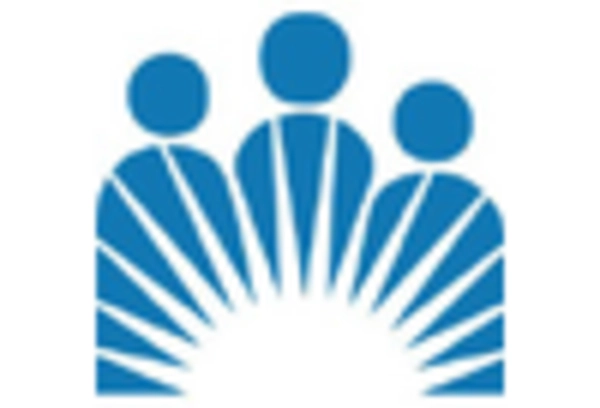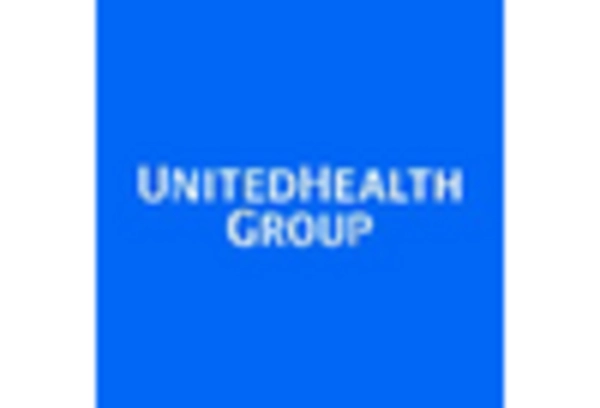Aging Population and Chronic Diseases
The Health Insurance Market is significantly influenced by demographic changes, particularly the aging population. As individuals age, they often experience a higher prevalence of chronic diseases, which necessitates more extensive healthcare services. Data indicates that by 2030, nearly 20% of the population will be over 65 years old, leading to increased demand for health insurance products that cater to this demographic. Insurers are responding by developing specialized plans that address the unique needs of older adults, including long-term care and chronic disease management. This demographic shift is likely to reshape the Health Insurance Market, as companies strive to offer tailored solutions that meet the evolving needs of an aging society.
Increasing Demand for Preventive Care
The Health Insurance Market is witnessing a notable shift towards preventive care services. This trend is driven by a growing awareness among consumers regarding the importance of early detection and management of health issues. As individuals prioritize their health, insurance providers are adapting their offerings to include comprehensive preventive care options. According to recent data, preventive services utilization has increased by approximately 30% over the past five years. This shift not only enhances patient outcomes but also reduces long-term healthcare costs, thereby benefiting both insurers and policyholders. Consequently, the Health Insurance Market is likely to see a sustained demand for policies that emphasize preventive care, reflecting a broader societal trend towards health and wellness.
Technological Advancements in Healthcare
The Health Insurance Market is being transformed by rapid technological advancements that enhance healthcare delivery and patient engagement. Innovations such as artificial intelligence, telemedicine, and wearable health devices are becoming integral to health management. These technologies not only improve patient outcomes but also streamline administrative processes for insurers. For instance, telehealth services have seen a surge in adoption, with a reported increase of 50% in usage over the last two years. As technology continues to evolve, the Health Insurance Market is likely to adapt by incorporating these advancements into their service offerings, ultimately leading to more efficient and effective healthcare solutions.
Regulatory Changes and Compliance Requirements
The Health Insurance Market is subject to a complex landscape of regulatory changes that impact how insurers operate. Recent legislation has introduced new compliance requirements aimed at enhancing consumer protection and ensuring access to affordable care. These regulations often necessitate adjustments in policy offerings and pricing structures. For example, the introduction of value-based care models has prompted insurers to reevaluate their reimbursement strategies. As regulations evolve, the Health Insurance Market must remain agile, adapting to new compliance standards while striving to maintain profitability. This dynamic environment presents both challenges and opportunities for insurers as they navigate the intricacies of regulatory compliance.
Rising Healthcare Costs and Affordability Concerns
The Health Insurance Market is grappling with the ongoing challenge of rising healthcare costs, which have become a pressing concern for consumers and insurers alike. Data suggests that healthcare expenditures have increased by over 5% annually, prompting individuals to seek more affordable insurance options. This trend has led to a growing demand for high-deductible health plans and alternative insurance models that offer lower premiums. Insurers are responding by innovating their product offerings to provide cost-effective solutions while maintaining quality care. As affordability remains a critical issue, the Health Insurance Market is likely to continue evolving, focusing on strategies that balance cost containment with access to necessary healthcare services.


